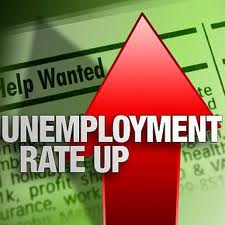Governor’s Sales Tax Hike will Hike Unemployment
Download the complete Policy Brief here; includes comparative table and reference end notes.
View or Download the Media Release here; includes quotes and additional information about Scott Moody and STAMP.
Lesson in Capitalism – “Dynamic Effects of Tax Policies”
Balancing the Budget via Sales Tax Increases would Cost Jobs for Rhode Island
January 23, 2012; by J. Scott Moody – adjunct scholar
Consider which of two tax-policy scenarios may be more beneficial for Rhode Island:
A) a policy that increases state revenues to sustain current spending, but which reduces the state’s economic output and where jobs are lost; where municipal revenues go down and where investment in our state is reduced.
B) a policy that reduces state revenues forcing cuts to current spending, but which increases our state’s economic output and where jobs are gained; where municipal revenues go up and where investments in our state rises.
This is the vital debate that must take place in the Ocean State during the 2012 legislative session.
2012 will predictably bring a vigorous debate about how to balance our state budget and how to pay for most of the current spending items in the budget – by some combination of increasing taxes and making cosmetic cuts to existing programs. This is the wrong debate and the wrong objective for the Ocean State!
Instead, debate should focus on how to make Rhode Island more competitive with our neighbors and how to grow our economy so as to add more good jobs for our citizens. Increased tax revenues will naturally follow from the expansion of economic activity.
Dynamic vs Static Tax Modeling
There is a common and fundamental miscalculation when it comes to projecting the effects of tax policy on state revenues. Too often, the more short-sighted and simplistic static calculation is utilized, when in reality is the more complex dynamic effect should be evaluated. The downstream effects of tax policy on various aspects of the economy are rarely discussed or quantified, either at the state or municipal level.
Take the state “sales tax” as an example. Rhode Island is expected to derive about $989.5 million from this tax, currently at 7%. In 2011, to balance the budget, the Governor proposed over $150 million in tax increases through an expansion of the state sales tax: reducing the sales tax on some items and charging new sales taxes on other items. For modeling purposes, assuming a overall target of $175 million in new revenues, this would have effectively raised the existing state sales tax rate to about 8.2%. While not an exact apples-apples comparison with the Governor’s 2011 plan, an analysis of the higher 8.2% sales tax, utilizing RI-STAMP, a state tax and analysis modeling program customized specifically for Rhode Island, shows the kind of negative consequences that can be expected to occur when any state sales tax hike is considered.
Tragically, this sales tax increase would not raise nearly the amount of revenues statically calculated because it would cause serious harm to our already deteriorating state and municipal economies. In summary, a sales tax hike of $175 million is projected to produce severe unintended consequences for theOceanState:
- Only a $55 million gain in net state revenues (vs the $175 million gain anticipated)
- A loss in Gross State Product o $932 million
- A loss of $22 million in municipal revenues
- A loss of $64 million in investment in our state
- A loss of 2,224 jobs
Because a sales tax increase would make Rhode Island even less competitive with its regional neighbors and nationally overall, consumer and entrepreneurial behavior would be significantly altered, resulting in lower economic activity and actually worsening the state’s economic plight. Municipalities, all too often overlooked, will also suffer from this unintended consequence.
Balancing the budget is the wrong goal; and tax increases are precisely the wrong solution!
Conversely, if the Ocean State was to cut its sales tax to 5%, a very different scenario is projected to occur, because our state would suddenly become a more attractive place to purchase goods and services, meaning economic activity would increase.
The static projection of a 2% sales tax cut would put the loss in state revenues, at 2/7 of the current revenue, or about $282.75 million in lower revenues to the state. But again, this static calculation ignores the true dynamic economic impact of tax reductions. RI-STAMP projects the following positive consequences from this tax decrease:
- Only a $74 million loss in net state revenues (vs the $283 million loss anticipated)
- A gain in Gross State Product o $1.9 Billion
- A gain of $44 million in municipal revenues
- A gain of $121 million in investment in our state
- A gain of 4,327 jobs
Just from this single tax reform, economic forces, which have been restrained by a burdensome tax structure, will be unleashed in the Ocean State. If the state can find $56 million in cuts, the Rhode Island economy will be vastly enhanced, resulting in more jobs and more local revenues … and we will balance a lower budget!
The Governor’s office recently stated that it plans to address the upcoming budget deficit by cutting spending and raising taxes. As demonstrated above, this path produces negative consequences.
If instead, we look to address the larger economic picture and look to produce more jobs and a brighter economic future for our citizens …
… cutting taxes and cutting spending will produce a more vigorous economy!
Additionally, from a regional and psychological perspective, instead of suffering the ignominy of charging highest sales tax in New England, Rhode Island would benefit by boasting the second lowest sales tax.
Reality Supports Theory
Some may argue that an economic modeling program is just theory and that the actual world may present a very different reality. However, right here in our own New England back-yard, there is specific empirical evidence that fully supports the core premise of the RI-STAMP projections regarding the effects of sales tax policy.
It is well-known that cross-border shopping exists to the great benefit of the zero sales tax state of New Hampshire, with many Rhode Islanders frequently putting in ‘orders’ with family members and friends crossing through the Granite State to pick up liquor and other items for them … duty free!
In Vermont, a recent study showed that its border counties are losing up to $540 Million in retail sales per year to New Hampshire . In Maine, a similar study showed that its border counties are likewise losing $2.2 Billion, in addition to thousands of retail jobs .
With the close proximity of Rhode Island to many Massachusetts and Connecticut residents, it is clear that Rhode Island can win the southern New England sales tax competition; that our economy can benefit from cross-border shopping and see a pronounced increase in economic activity and jobs for our state and our cities & towns.
WHAT IS RI-STAMP?
Developed by the Beacon Hill Institute at Suffolk University, RI-STAMP is a customized, comprehensive model of the RI state economy, designed to capture the principal effects of city tax changes on that economy. In general STAMP is a five-year dynamic computable general equilibrium (CGE) tax model. As such, it provides a mathematical description of the economic relationships among producers, households, government and the rest of the world. It is general in the sense that it takes all the important markets and flows into account. It is an equilibrium model because it assumes that demand equals supply in every market (goods and services, labor and capital); this is achieved by allowing prices to adjust within the model (i.e., prices are endogenous). The model is computable because it can be used to generate numeric solutions to concrete policy and tax changes, with the help of a computer. And it is a tax model because it pays particular attention to identifying the role played by different taxes.
Download the complete Policy Brief here; includes comparative table and reference end notes.
Media Coverage:
1/30/2012: Americans For Tax Reform , ATR: Opposed to Rhode Island Sales Tax Increase
1/23/2012: GoLocalProv.org, NEW: Conservative Think Tank Rips Chafee on Taxes



Leave a Reply
Want to join the discussion?Feel free to contribute!